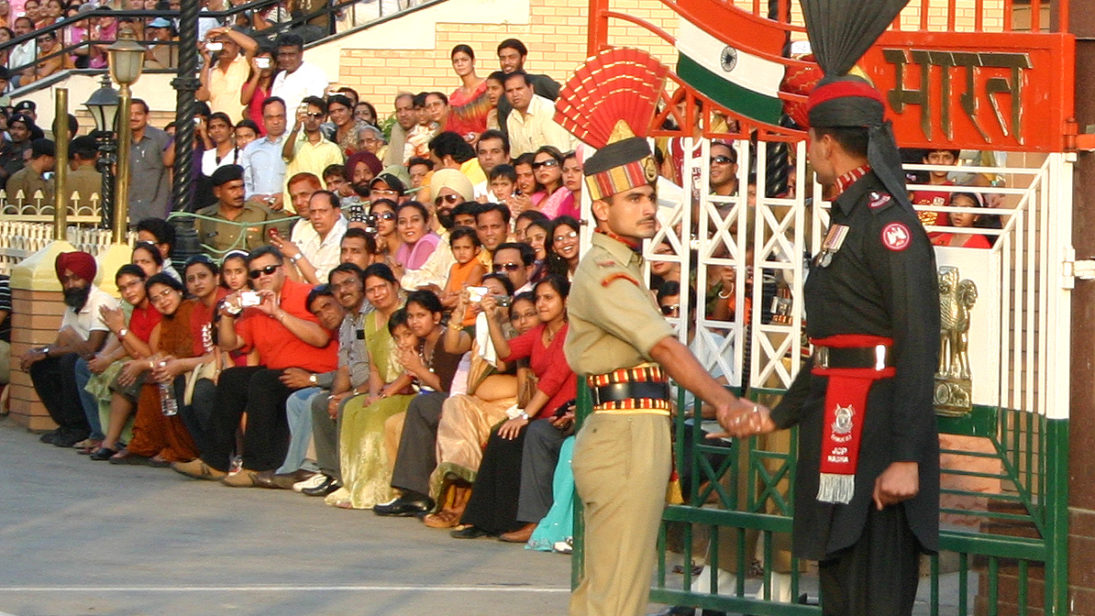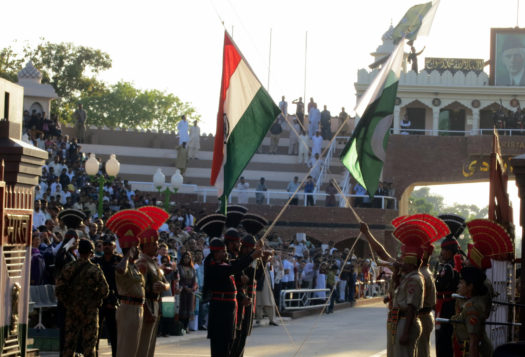
The recent terror attack in Pahalgam, which targeted unarmed civilians and killed 26 people, marks a dangerous escalation between nuclear rivals India and Pakistan. The Resistance Force, a group widely believed to be associated with Pakistan-based and United Nations-designated terror outfit Lashkar-e-Taiba (LeT), initially claimed responsibility for the attack before backtracking. Reports and testimonies from survivors suggest that militants checked the religious identity of victims, mostly Hindus, before opening fire—an ominous sign that militant groups have likely adopted religious targeting as a renewed modus operandi to inflame communal tensions in Jammu & Kashmir. Many in New Delhi see a direct link between this emerging phase of militancy in the region and Pakistan Army Chief General Syed Asim Munir’s hardline and religiously conservative approach towards India.
Although Munir has largely respected the ceasefire understanding in the last two-and-a-half years, he has not proposed a way forward with India, particularly on Kashmir. On the contrary, his provocative remarks on India, the Kashmir issue, and religion have only exacerbated tensions between the two countries.
Unlike his predecessor, General (Retd.) Qamar Javed Bajwa, Munir has not shown much interest in improving ties with India after becoming the army chief in November 2022. During Bajwa’s term, India and Pakistan negotiated a border ceasefire understanding in February 2021 through a backchannel dialogue, which was viewed as a significant confidence-building measure amid heightened tensions between the two countries following India’s constitutional decision to abrogate J&K’s semi-autonomous status in August 2019. Although Munir has largely respected the ceasefire understanding in the last two-and-a-half years, he has not proposed a way forward with India, particularly on Kashmir. On the contrary, his provocative remarks on India, the Kashmir issue, and religion have only exacerbated tensions between the two countries.
In his recent address at the Overseas Pakistanis Convention in Islamabad on April 16, Munir backed the “two-nation theory,” which led to the creation of Pakistan in 1947, citing differences between Hindus and Muslims in various aspects of life. He also reiterated Pakistan’s fundamental position on Kashmir, referring to it as the country’s “jugular vein.” That these remarks came merely a week before the Pahalgam attack, in which militants reportedly associated with TRF though later denying responsibility shot tourists based on their religious identity, has raised eyebrows in New Delhi. Notably, many similar attacks have been attributed to the group in the recent past, including an ambush of a bus of Hindu pilgrims in the Reasi district of the Jammu division on Prime Minister Narendra Modi’s swearing-in ceremony in June last year.

Many in India are drawing linkages between Munir’s overtly conservative religious stance and Pahalgam, some even speculating it to be a direct catalyst for the attack, which threatens to spike communal tensions in J&K. The current mood in India is one of revenge, and the anger is particularly directed at the Pakistan military and, specifically, at Munir himself. In his statement on the attack, Prime Minister Modi issued a warning that “India will identify, trace, and punish every terrorist and their backers.” Similar to India’s “surgical strikes” in 2016 and the Balakot airstrikes in 2019 in response to terror attacks in J&K, Modi’s recent statement suggests that his government is likely to take military action not only against the militant group responsible for the Pahalgam incident but also against what it believes are the alleged army establishment “backers” in Pakistan. In light of this heightened crisis, New Delhi seems poised to consider decisive action, possibly targeted strikes on select military installations within Pakistan. Such a move would be perceived in India not only as retaliation for Pahalgam but also as a clear message to the Pakistan army—confirming that New Delhi will not revert to the pre-August 2019 status of J&K, which is Pakistan’s key demand on the Kashmir issue. Furthermore, New Delhi would not hesitate to risk military escalation if cross-border terror attacks continue to take place in the region.
While military retaliation from India appears imminent, New Delhi has already unveiled a series of non-military measures, the most sensitive of which is the “abeyance” of the Indus Waters Treaty (IWT). This move has triggered an outcry in Pakistan, where citizens, media, politicians, and government officials alike have described it as an “act of war.” Though the treaty has withstood multiple crises between the two countries since its inception in 1960, its suspension indicates the depth of India’s frustration with cross-border terrorism and the gravity of the current situation. In response, Islamabad has warned of suspending all historical bilateral agreements with New Delhi since 1947, including the Simla accord of 1972, which would jeopardize the Line of Control (LoC)’s status as a de facto border in large parts of J&K.
In light of this heightened crisis, New Delhi seems poised to consider decisive action, possibly targeted strikes on select military installations within Pakistan. Such a move would be perceived in India not only as retaliation for Pahalgam but also as a clear message to the Pakistan army—confirming that New Delhi will not revert to the pre-August 2019 status of J&K, which is Pakistan’s key demand on the Kashmir issue.
As a result of these actions, the ongoing crisis between India and Pakistan may have significant and lasting impacts on the status quo on the Kashmir issue. Domestically, this crisis could impact the Modi government’s efforts to improve the region’s security and derail the chances of reverting J&K to statehood from its current status of Union Territory. Moreover, fearing more terror incidents and overall instability amidst heightening Indo-Pakistani military tensions, there will likely be a drop in tourism in Kashmir in the short term.
Regionally, the Pahalgam incident has unsettled the fragile peace between India and Pakistan, which had been maintained since the ceasefire understanding struck in 2021. With almost no diplomatic relationship to speak of and a lack of a functioning backchannel dialogue, there are concerns that this new crisis between the two nuclear powers may escalate unpredictably. The 2019 Pulwama/Balakot crisis was a stark reminder of how inadvertent escalation can exacerbate an active military conflict and push dynamics into uncharted territory. If current tensions escalate into a military confrontation between India and Pakistan, an extended conflict across multiple domains—both conventional and sub-conventional—and spread over geographical theatres (i.e. beyond J&K) becomes possible, raising the chances of heavy civilian and military casualties on both sides in the days and weeks ahead.
Views expressed are the author’s own and do not necessarily reflect the positions of South Asian Voices, the Stimson Center, or our supporters.
Also Read: Pahalgam Aftermath: Assessing the Escalatory Potential of India and Pakistan’s Responses. For more analysis on Pahalgam and its aftermath, read our entire series here.
***
Image 1: Wagah border via Wikimedia Commons
Image 2: Draskd via Flickr


